Hi, momma! Let’s start with a big round of applause for you—navigating the amazing, challenging, and sometimes downright exhausting breastfeeding journey. Your body is doing incredible work, providing the best for your little one. To keep that milk flowing like liquid gold and ensure you stay healthy, too, the right nutrition is key. Let’s dive into the best foods for breastfeeding moms that can help you feel your best and boost your milk supply, along with a quick note on the food to avoid while breastfeeding to keep things safe and smooth.
Why Nutrition Matters During Breastfeeding?

Breastfeeding is a full-time job, and like any job, it demands fuel—lots of it! Your body needs extra calories and nutrients to produce milk. The foods you eat not only nourish you but also impact the quality of your breast milk. Eating mindfully ensures both you and your baby thrive. Plus, focusing on good nutrition can help you regain strength post-delivery and give you the energy to handle those late-night feedings.
Best Food for Breastfeeding
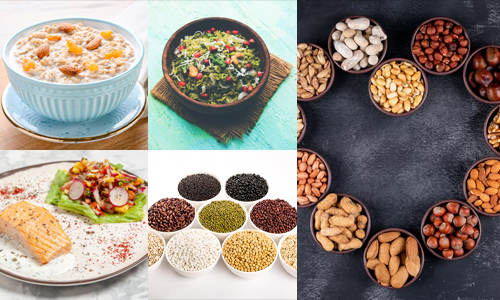
Here’s your guide to a nutrient-packed plate that supports both milk supply and overall health.
1. Oats: The Breakfast Champion
Oats are a superstar when it comes to foods to increase milk supply. Packed with iron, they help combat postpartum fatigue and keep your energy steady. Start your day with oatmeal or add it to smoothies and baked goods.
2. Leafy Greens: The Vitamin Boost
Spinach, kale, and fenugreek leaves are rich in calcium, folate, and iron—essential for milk production and your overall health. Fenugreek, in particular, is known as a traditional galactagogue (a fancy word for milk booster).
3. Salmon: Omega-3 Goodness
This fatty fish is rich in DHA, an omega-3 fatty acid that supports your baby’s brain development. It’s also great for your mood, helping to keep the “baby blues” at bay.
4. Nuts and Seeds: Snacking for Supply
Almonds, walnuts, and flaxseeds are full of healthy fats and protein. They make for quick, delicious snacks while also helping to improve milk quality. Add a handful to your diet daily or toss them into yogurt or salads.
5. Whole Grains: Sustained Energy
Quinoa, brown rice, and whole-grain bread provide complex carbs that keep you feeling fuller longer and energized for your busy day.
6. Legumes: The Protein Punch
Lentils, chickpeas, and beans are rich in plant-based protein and iron. They’re also known to increase milk supply—another galactagogue for the win!
7. Sweet Potatoes: The Comfort Food
Loaded with beta-carotene, sweet potatoes support healthy milk production. Plus, they’re versatile—you can mash them, bake them, or turn them into fries.
8. Eggs: Versatile Nutrition
Eggs are a great source of protein and choline, which is essential for your baby’s brain development. They’re quick and easy to whip up in a variety of ways.
9. Greek Yogurt: Creamy and Calcium-Rich
Greek yogurt is loaded with calcium and probiotics, which support bone health and gut health. Add fruit and honey for a nutrient-packed snack or breakfast.
10. Hydrating Foods: Staying Refreshed
Cucumbers, watermelon, and oranges help you stay hydrated, which is crucial for milk production. Breastfeeding can leave you thirsty, so keep water-rich foods and a big water bottle handy!
Food to Avoid While Breastfeeding

Not all foods are your breastfeeding BFFs. Here’s a list of common culprits that could impact your milk supply or upset your baby’s tummy,
- Caffeine – A cup or two is fine, but too much can make your baby fussy or disrupt their sleep.
- Spicy Foods – While some babies tolerate spices well, others may react with gas or irritability.
- Alcohol – If you’re indulging in a glass of wine, wait 2-3 hours before breastfeeding to ensure it clears from your system.
- Fish High in Mercury – Limit intake of fish like swordfish or king mackerel to avoid mercury exposure.
- Allergenic Foods – If your baby shows signs of food sensitivity (rash, diarrhea, or fussiness), consult a pediatrician to rule out allergens like dairy or peanuts.
Best Foods for Lactation: The Milk Boosters
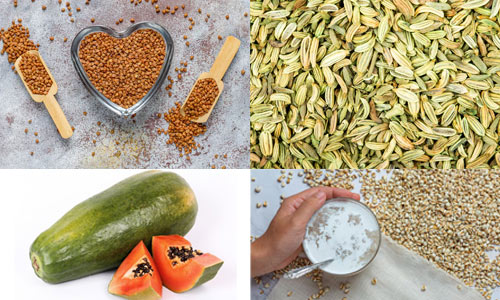
Certain foods have gained a reputation for supporting milk production. Here’s a list of food to increase milk supply.
- Fenugreek Seeds – Often consumed as tea, these are legendary for increasing milk supply.
- Fennel Seeds – Known to boost milk flow and reduce gas for both mom and baby.
- Papaya – An enzyme-rich fruit that supports lactation.
- Brewer’s Yeast – A common ingredient in lactation cookies, it’s packed with B vitamins.
Simple Recipes for Breastfeeding Moms
Lactation Smoothie
- 1 cup almond milk
- ½ cup oats
- 1 banana
- 1 tablespoon flaxseeds
- A dollop of Greek yogurt
Blend and enjoy this creamy, milk-boosting drink!
Energy Bites
- 1 cup oats
- ½ cup peanut butter
- ¼ cup honey
- 2 tablespoons brewer’s yeast
- 2 tablespoons flaxseeds
Mix, roll into bite-sized balls, and refrigerate. Perfect for a quick snack!
Postpartum Weight Loss and Breastfeeding
Losing weight after giving birth can be a sensitive topic, especially while breastfeeding. It’s important to strike a balance between nourishing your baby and taking care of your own health. Here’s how you can achieve postpartum weight loss without compromising your breastfeeding journey,
1. Focus on Nutrient-Dense Foods
Breastfeeding burns an extra 300–500 calories a day, so your body needs fuel! Prioritize foods that are nutrient-rich rather than calorie-dense:
- Whole grains like quinoa, oats, and brown rice.
- Lean proteins like chicken, fish, eggs, and lentils.
- Healthy fats like avocados, nuts, and seeds.
These choices support milk production while helping you feel full longer, which can prevent overeating.
2. Avoid Crash Diets
Your body needs time to recover after childbirth, and extreme calorie restriction can harm milk supply. Instead, aim for a gradual weight loss of 1–2 pounds per week by eating mindfully and staying active.
3. Stay Active
Gentle exercises like walking, yoga, or postpartum Pilates can boost your metabolism without draining your energy. Once your doctor gives the green light, incorporate strength training to rebuild muscle tone.
4. Don’t Skip Meals
Skipping meals can leave you feeling sluggish and affect your milk supply. Instead, eat smaller, frequent meals packed with fiber and protein to keep energy levels steady.
5. Hydrate Wisely
Dehydration can make you feel hungrier and might impact milk production. Aim for at least 8–10 glasses of water daily, and add herbal teas or soups for variety.
6. Sleep and Stress Management
Easier said than done, right? But lack of sleep and high stress levels can increase cravings and make weight loss harder. Try to rest when your baby naps, and practice mindfulness or meditation to stay grounded.
Foods That Can Change the Taste of Breast Milk
Did you know your diet not only affects your milk supply but also the flavor of your breast milk? Babies are tiny food critics, and what you eat might influence how they respond.
1. Garlic
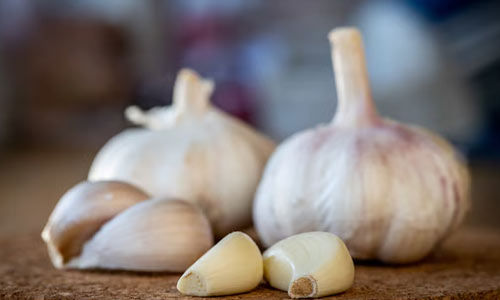
Garlic can add a savory note to your milk, and surprisingly, many babies enjoy it! Some research suggests that garlic may even encourage longer feeding sessions.
2. Spicy Foods
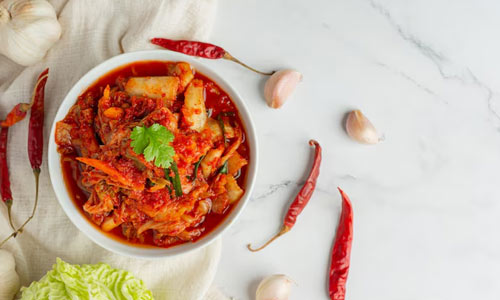
If you love a spicy curry, don’t shy away—your baby might enjoy the hint of spice in your milk. However, if your baby seems fussy afterwards, it might be time to tone it down.
3. Citrus Fruits
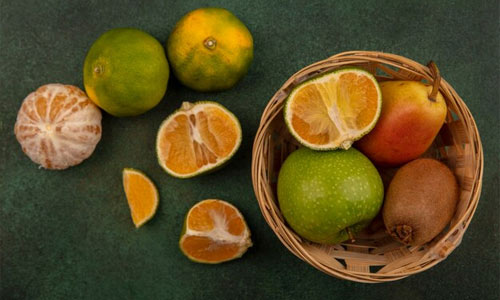
Oranges, lemons, and other citrus fruits can make your milk tangy. While this is usually fine, excessive citrus might irritate a baby’s sensitive tummy.
4. Asparagus and Cruciferous Vegetables
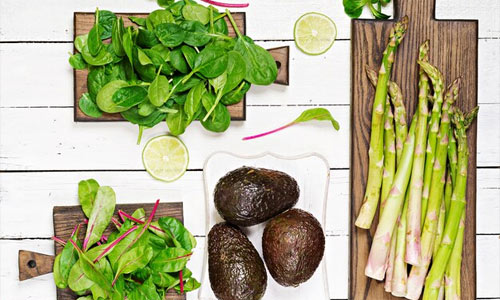
Foods like asparagus, broccoli, and cabbage can add a slightly bitter taste. While not harmful, some babies might be picky about these flavors.
5. Mint and Sage

Mint and sage can change the milk’s flavor and, in large amounts, may even reduce your milk supply. Use them sparingly.
6. Dairy Products
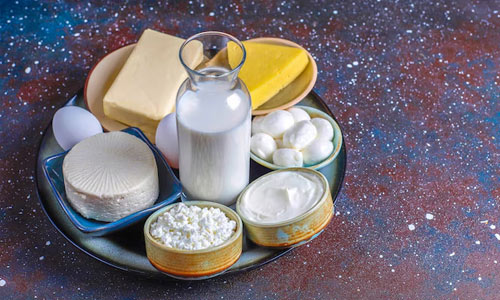
Milk and cheese can alter the taste of breast milk subtly. Watch for signs of sensitivity in your baby, like fussiness or rashes, which might indicate a dairy intolerance.
Tips to Balance Your Diet While Breastfeeding
Introduce Variety
Eating a range of foods exposes your baby to different tastes and can encourage adventurous eating as they grow.
Monitor Reactions
Pay attention to your baby’s cues. If they seem fussy or gassy, consider cutting back on foods like onions, beans, or carbonated drinks.
Stay Consistent
Babies get used to the flavors in your milk. If a new food initially causes some resistance, try it a few more times before ruling it out.
Listen to Your Body
Breastfeeding is a partnership. If certain foods make you feel uncomfortable or bloated, they’re not worth it for you or your baby.
Nourish Yourself, Nourish Your Baby
Breastfeeding is a beautiful, demanding journey, and your nutrition is its foundation. By focusing on the best foods for breastfeeding and staying mindful of the foods to avoid while breastfeeding, you’re setting yourself and your baby up for success.
Every bite you take is a step toward boosting milk supply and keeping your energy up—so treat yourself with care and love. Because, mama, you deserve it!
Stephenie
Related posts
Women Tips
Privacy Overview
| Cookie | Duration | Description |
|---|---|---|
| cookielawinfo-checkbox-analytics | 11 months | This cookie is set by GDPR Cookie Consent plugin. The cookie is used to store the user consent for the cookies in the category "Analytics". |
| cookielawinfo-checkbox-functional | 11 months | The cookie is set by GDPR cookie consent to record the user consent for the cookies in the category "Functional". |
| cookielawinfo-checkbox-necessary | 11 months | This cookie is set by GDPR Cookie Consent plugin. The cookies is used to store the user consent for the cookies in the category "Necessary". |
| cookielawinfo-checkbox-others | 11 months | This cookie is set by GDPR Cookie Consent plugin. The cookie is used to store the user consent for the cookies in the category "Other. |
| cookielawinfo-checkbox-performance | 11 months | This cookie is set by GDPR Cookie Consent plugin. The cookie is used to store the user consent for the cookies in the category "Performance". |
| viewed_cookie_policy | 11 months | The cookie is set by the GDPR Cookie Consent plugin and is used to store whether or not user has consented to the use of cookies. It does not store any personal data. |

